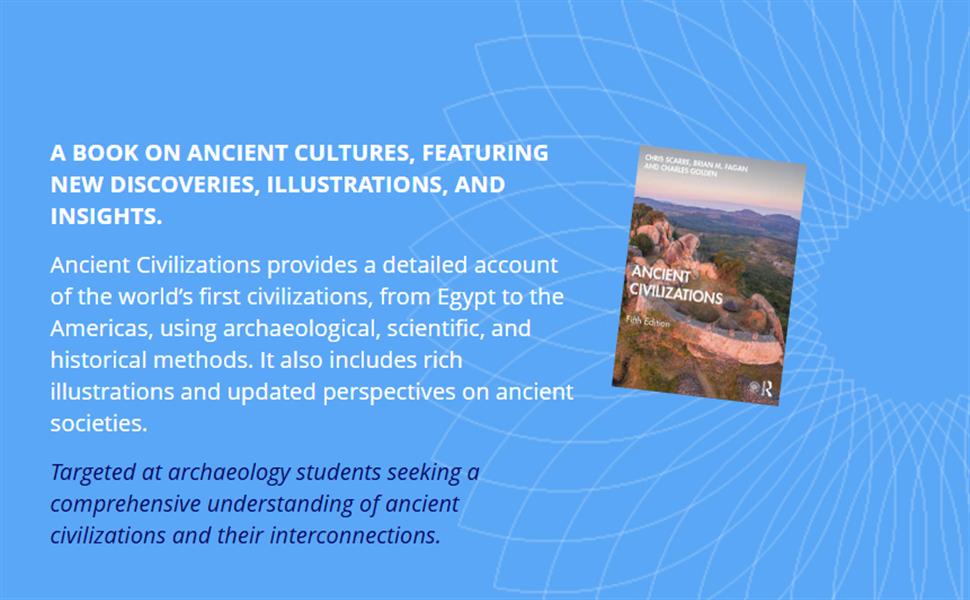Ancient civilizations refer to the first settled and complex human societies that developed key cultural, political, and technological features. The term 'civilization' comes from the Latin word civis, meaning 'citizen,' highlighting the central role of cities and urban life in this new form of social organization. These societies emerged following the Neolithic Revolution, which introduced agriculture and allowed for sedentary communities and food surpluses. National Geographic defines a civilization by several key characteristics that distinguish it from smaller, pre-literate societies.
Characteristics of Civilization
While no single definition is universally accepted, historians and archaeologists generally identify several traits that are hallmarks of a civilization:
- –Urban Centers: The presence of large, densely populated settlements, or cities, which serve as administrative, economic, and cultural hubs.
- –Complex Institutions: Organized government to administer the society and a formal religious structure to explain the universe and guide morality. These institutions created and enforced laws and collected taxes or tribute.
- –Social Stratification: A hierarchical social structure with distinct classes, including rulers, priests, warriors, artisans, farmers, and often, slaves. This hierarchy was based on economic, political, or religious power.
- –Specialized Labor: A surplus of food allowed some individuals to specialize in tasks other than farming, such as metalworking, pottery, weaving, or scribal work.
- –Monumental Architecture and Art: The construction of large-scale public works, such as temples, pyramids, palaces, and irrigation systems. Art was often used for religious or political purposes to express the identity and power of the civilization.
- –Writing Systems: The development of a method for keeping records, which was essential for managing trade, collecting taxes, and codifying laws. Early forms include cuneiform in Mesopotamia and hieroglyphs in Egypt.
World History Encyclopedia
- –Advances in Science and Technology: Innovations such as metallurgy (leading to the Bronze Age and Iron Age), the wheel, mathematics, astronomy, and complex calendars.
Cradles of Civilization
The first civilizations emerged independently in several regions around the world, often in fertile river valleys. These locations are sometimes referred to as the "cradles of civilization."
- –Mesopotamia: Located between the Tigris and Euphrates rivers in modern-day Iraq, Mesopotamia is widely considered the first civilization, emerging with Sumer around 3500 BCE. It was home to numerous successive empires, including the Akkadian Empire, Babylonia, and Assyria. Its contributions include the invention of writing (cuneiform), the wheel, and the earliest known legal code, the Code of Hammurabi.
The British Museum
- –Ancient Egypt: Developing along the Nile River around 3100 BCE, Egyptian civilization was characterized by the centralized rule of the pharaohs, a complex polytheistic religion, and monumental building projects like the pyramids and the Sphinx at Giza. They developed a system of hieroglyphic writing and made significant advances in mathematics, medicine, and astronomy.
- –Indus Valley Civilization: Flourishing around 2500 BCE in what is now Pakistan and northwest India, this civilization (also known as the Harappan Civilization) was notable for its highly planned cities, such as Mohenjo-daro and Harappa, which featured sophisticated water management and grid-like street layouts. Its writing system remains undeciphered.
Britannica
- –Ancient China: The earliest Chinese civilization emerged in the Yellow River (Huang He) valley with the Shang Dynasty around 1600 BCE. Key developments included a complex logographic writing system, advanced bronze casting, and philosophical concepts like the Mandate of Heaven.
- –Mesoamerica: The Olmec civilization, emerging around 1500 BCE in the lowlands of south-central Mexico, is considered the "mother culture" of later Mesoamerican civilizations like the Maya and Aztecs. They are known for their colossal stone head sculptures and early forms of a regional calendar and writing.
- –Andean Civilizations: The Norte Chico civilization (also Caral-Supe) in modern-day Peru is one of the oldest, emerging as early as 3000 BCE. Unlike other early civilizations, it appears to have developed without pottery or a known writing system, yet it built large monumental structures and complex irrigation systems.
Decline and Legacy
The decline of ancient civilizations was often caused by a combination of factors, including climate change, environmental degradation (such as deforestation and soil salinization), internal conflict, disease, and invasion by outside groups. Despite their collapse, their influence is profound. They laid the foundations for modern systems of law, government, language, science, and religion. Concepts of citizenship, democracy, and monumental engineering all have their roots in the ancient world, and their innovations continue to shape human society today.
